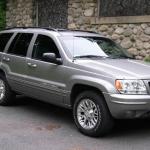What: Over 100 million Takata airbag inflators.
Who: Stellantis N.V. and the Takata Corporation.
When: Takata lawsuits have occurred in the United States since October 27, 2013.
Where: The recall applies to all 67 million airbags across the United States alone.
Why: The risk that the airbags could deploy explosively, injuring and even killing the car occupants.
How Do I Know If I Qualify for a Settlement?: Owners with vehicles who are part of the Takata recalls or those who have been injured by a Takata airbag may be eligible for compensation.
The National Highway Traffic Safety Administration (NHTSA) is calling The Takata airbag recall the largest and most complex recall in American automotive history. According to the reports, 19 different automakers, with a total of 34 vehicle brands, have had multiple vehicles recalled to replace frontal airbags on the driver's side, the passenger's side, or even both due to safety concerns.
The airbags, made by major parts supplier Takata, were installed in cars mostly from 2002 through 2015. The vehicles with the Takata airbags have been recalled due to the fuel in the airbag can degrade after prolonged exposure to high temperatures and humidity. This can lead to an explosion that would propel metal fragments to those in the front and passenger seats, causing severe injuries or death. Since the recalls started, a total of 67 million Takata airbags have been recalled, with 11 million yet to be replaced. In the United States, there have been 24 deaths and more than 400 injuries due to the Takata airbags.
In 2017, Takata pled guilty to criminal misconduct and reached a $1 billion settlement with the U.S. Department of Justice. According to the suit, $850 million of the sum went to the automakers impacted by defective Takata airbags. $25 million served as a fine to federal regulators for concealing the defects for so long, and the remaining $125 million was geared toward victim compensation in the form of a trust.
Below we have listed some of the settlements victims have won over the year from lawsuits against Takata. Victims who have been injured by the Takata airbags are still eligible to file a claim. For more information, you can contact one of our attorneys.
Takata Airbags Settlements
PARHAM V. TAKATA (2009) - UNDISCLOSED
Ashley Parham (18) of Oklahoma was the first known Takata-related fatality. She bled to death after the airbag in her 2001 Honda Accord fired shrapnel into her neck, slicing open an artery. (She’d been in a minor car accident.) Ms. Parham’s family filed a wrongful death lawsuit, which Takata settled immediately in August 2009.
WILLIAMS V. TAKATA (2011) - UNDISCLOSED
In 2010, Kristy Williams was stopped at a red light in Morrow, Georgia, when her 2001 Honda Civic's airbag exploded for no reason. It shot shrapnel into her neck, severing her carotid artery. Ms. Williams staunched the bleeding, called an ambulance, and survived. But since the accident, she says strokes, a seizure, and a speech disorder have plagued her.
Ms. Williams filed a lawsuit against Takata, which the company settled for an undisclosed amount in January 2011.
RATHORE V. TAKATA (2012) - $3 MILLION
In December 2009, a mail truck struck 33-year-old Gurjit Rathore’s Honda Accord. Her Takata airbag deployed, firing shrapnel into Ms. Rathore’s chest and neck. These injuries proved fatal, and her family filed a wrongful death lawsuit against Takata Corp. In 2012, Takata settled this lawsuit for $3 million. In 2016—after learning that Takata knew about the potentially lethal airbag defect and manipulated data to cover it up—Ms. Rathore’s family sought to reopen the lawsuit.
VARIOUS V. TAKATA & HONDA (2014-2015) - UNDISCLOSED
From 2014 to 2015, Takata and Honda settled at least six wrongful death lawsuits filed over defective airbags. (They reached four of these undisclosed settlements in the latter half of 2015.) In November 2014, Bloomberg wrote, “The quick, secret deals, a cornerstone of product liability litigation across industries, help explain why, years after the first recall, so much remains unknown about defects linked to four U.S. deaths. The few cases filed have generally been resolved before victims’ lawyers acquired evidence.”
STATE OF HAWAII V. TAKATA & HONDA (2016) - $7 MILLION
In May 2016, the State of Hawaii became the first (but probably not last) state to sue Takata and Honda. Hawaii demanded $10,000 for each car owner affected by the airbag crisis. Hawaii’s Director of Consumer Protection, Steve Levins, told The New York Times, “We’re not going to sit back and wait for more accidents to happen.” Levins added, “We’re also seeking that consumers be compensated for any losses associated with this incident, whether that’s alternative transportation costs or a diminished value of their vehicle.”
JOHNSTON V. TAKATA & HONDA (2016) - UNDISCLOSED
In September 2015, Randi Johnston of Centerville, Utah, was in an accident while driving her 2003 Honda Civic to work. The Takata airbag fired metal shards into Ms. Johnston’s face and neck, slicing her trachea and damaging her vocal cords. An Army medic was on the scene and may have saved Ms. Johnston’s life. Ms. Johnston filed a lawsuit alleging negligence, reckless conduct, and breach of warranty by Takata, Honda, and the car dealership. At the time of the filing, she could not speak as a result of her vocal cord damage.
In June 2016, the defendants reached an undisclosed settlement with Ms. Johnston.
MINCEY V. TAKATA (2016) - UNDISCLOSED
In June 2014, a 75-year-old woman named Patricia Mincey was paralyzed after the Takata airbag in her 2001 Honda Civic inflated with excessive force during a collision. This airbag was recalled less than a week after the accident. Ms. Mincey lost all feeling below her neck and later filed a lawsuit alleging that Takata knowingly produced and sold defective airbags. Tragically, she passed away in April 2016 from injuries related to her quadriplegia.
On July 15, 2016, mere minutes before her trial was set to begin, Takata reached an undisclosed settlement with Ms. Mincey's family.
TANIF V. TAKATA & HONDA (2016) - UNDISCLOSED
On November 8, 2016, the family of 17-year-old Texan Huma Hanif reached an undisclosed settlement with Takata, Honda, and Westside Hummer, where Ms. Hanif purchased her 2002 Honda Civic. Ms. Hanif died on March 31, 2016, when her Civic rear-ended another vehicle near Houston. The airbag fired shrapnel into Ms. Hanif's neck, and she died at the scene.
FLORIDA V. TOYOTA, BMW, SUBARU & MAZDA (2017) - $ 741 MILLION
In November 2017, a Florida federal judge granted final approval to an aggregate settlement of $741 million with Toyota, BMW, Subaru, and Mazda over claims of vehicles containing the Takata airbags.
ARIZONA V. HONDA (2020) - $5 MILLION
Honda settled with the state of Arizona for $5 million in a lawsuit alleging the automaker failed to warn drivers about defective airbags. Honda used Takata airbag inflators in select Honda and Acura cars manufactured between 2001 and 2016. $1.65 million of the settlement went directly to the affected Arizonans.
UNITED STATES* V. HONDA (2020) - $96.5 MILLION
The lawsuits came from attorneys general in 46 states, three U.S. territories, and Washington, D.C., after an investigation into Honda's alleged failure to inform regulators and consumers of the risk behind the Takata airbags. Honda agreed to upgrade its airbag safety procedures to reduce the risk of ruptures. Of the $96.5 million settlement, roughly $1 million will go to the National Association of Attorneys General—$ 11.3 million to the state of California, and $84 million to settle each jurisdiction's lawsuit.
What You Should Do if Your Car Has Been Recalled
If you suspect your vehicle may be part of the Takata airbags recall, you should verify with your car's dealership first. Depending on the vehicle, drivers can either call the customer service hotline or head to the vehicle brand's website to learn more about the recalls associated with the brand. Drivers can also use the NHTSA's website and enter their vehicle's 16-digit Vehicle Identification Number(VIN) into their search engine to see if their car has been registered to the Takata recall.
Drivers can locate their vehicle's VIN on the lower left side of their vehicle's windshield, their car's registration card, or in some cases, their insurance card. If you are still having trouble understanding if your vehicle is part of the Takata recall, speaking to one of our attorneys can help.
The Takata Cases Are Still Open
For over 30 years, our law firm has won jury awards and settlements against automakers. Our attorneys have extensive experience with cases like these, including lawsuits related to Continental airbags, GM ignition switches, Volkswagen emissions fraud, and more–which makes us uniquely qualified to handle large and complex class action cases. If a defective Takata airbag injured you or a loved one, contact us immediately for a free, no-obligation consultation.
You still have time to register a claim in the Takata airbags recall case. If you have been injured, do not hesitate to contact us today.





